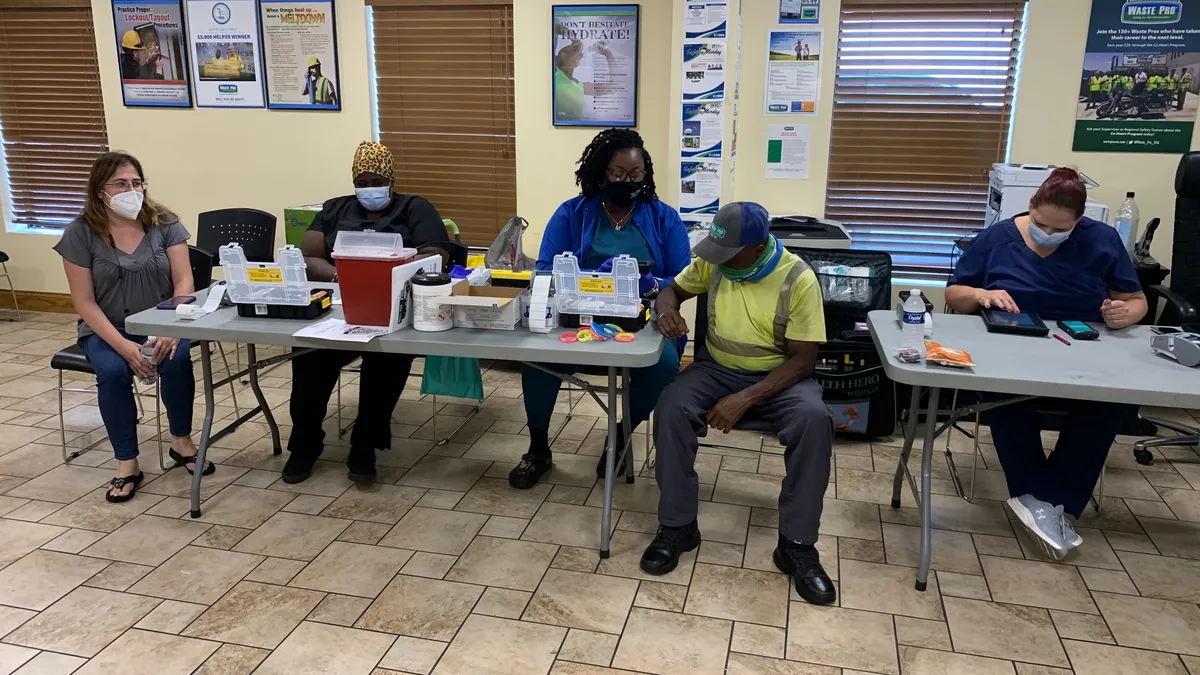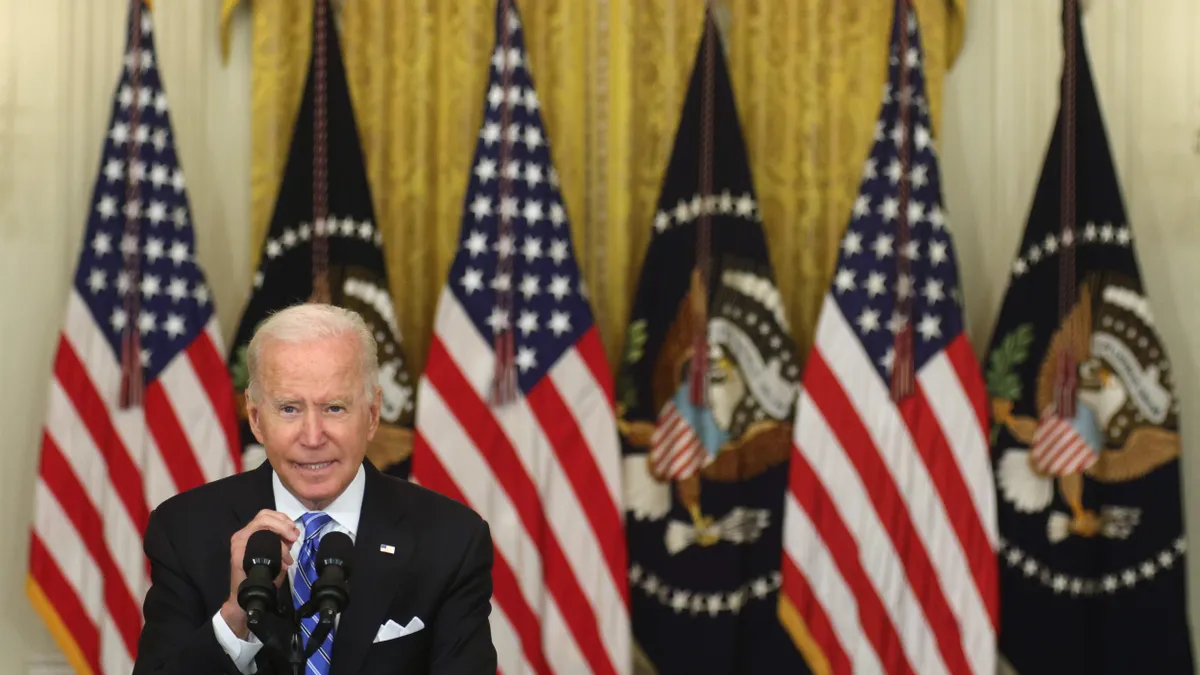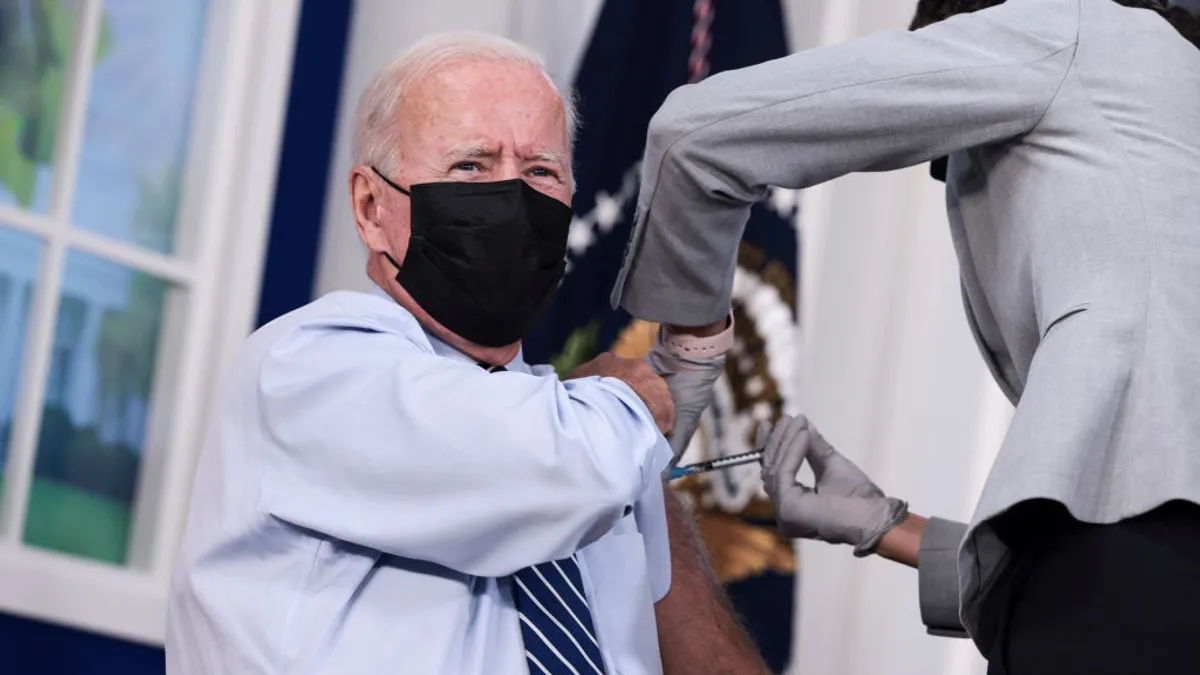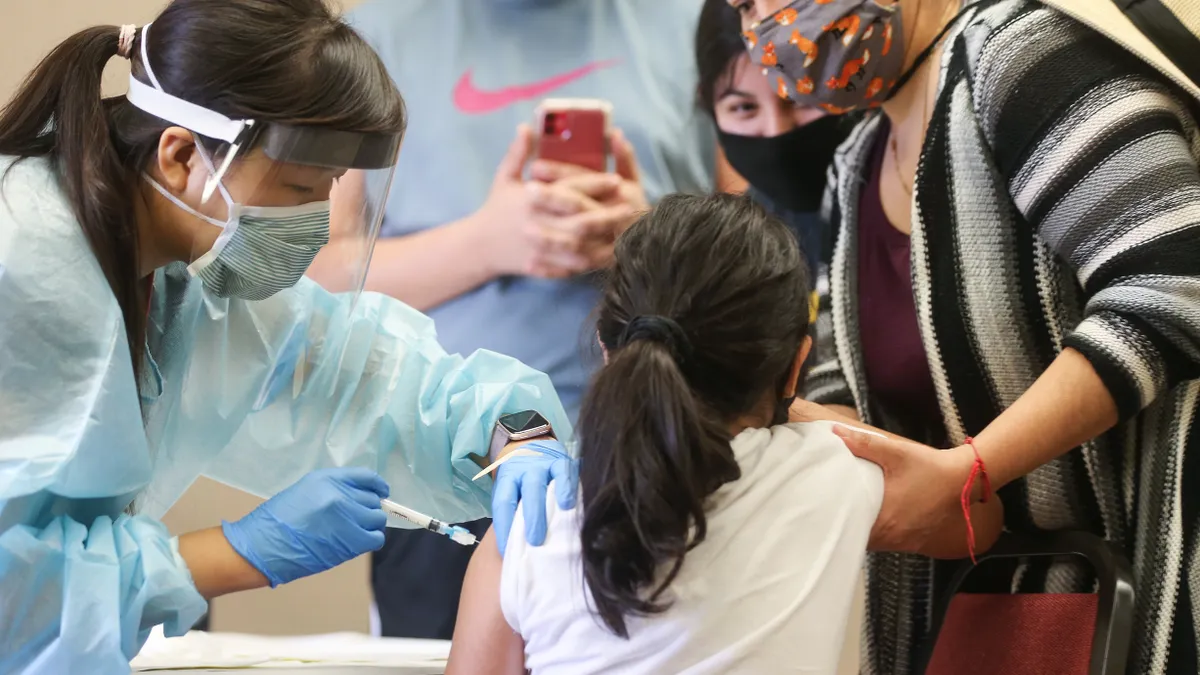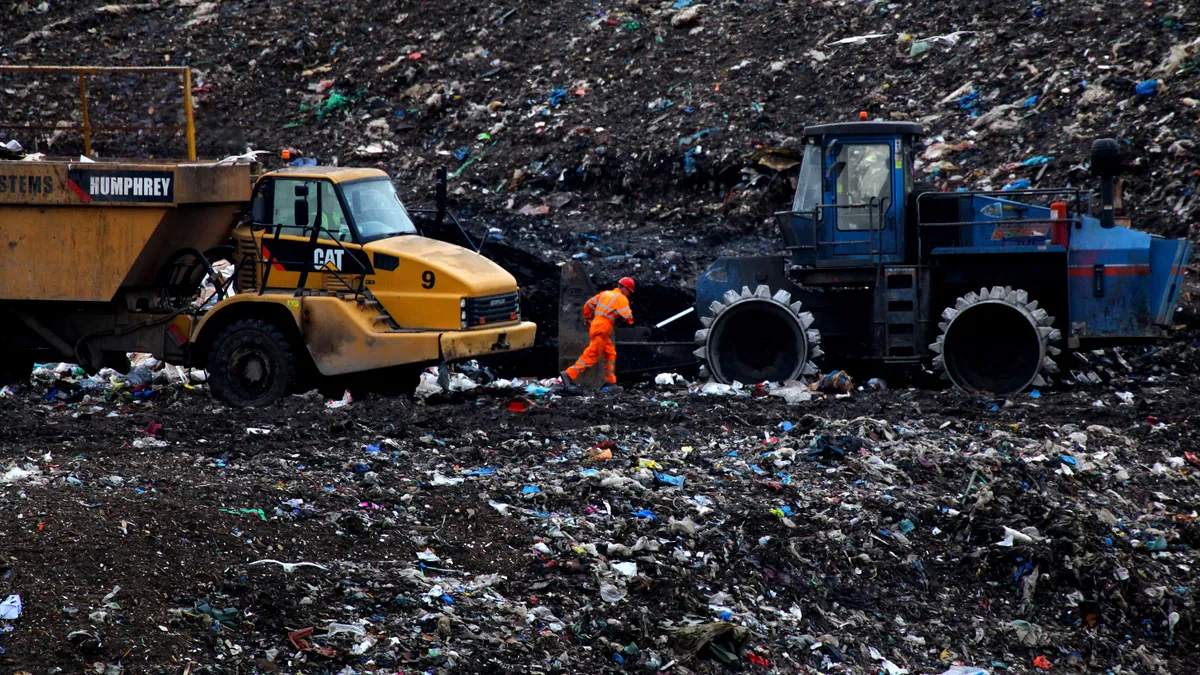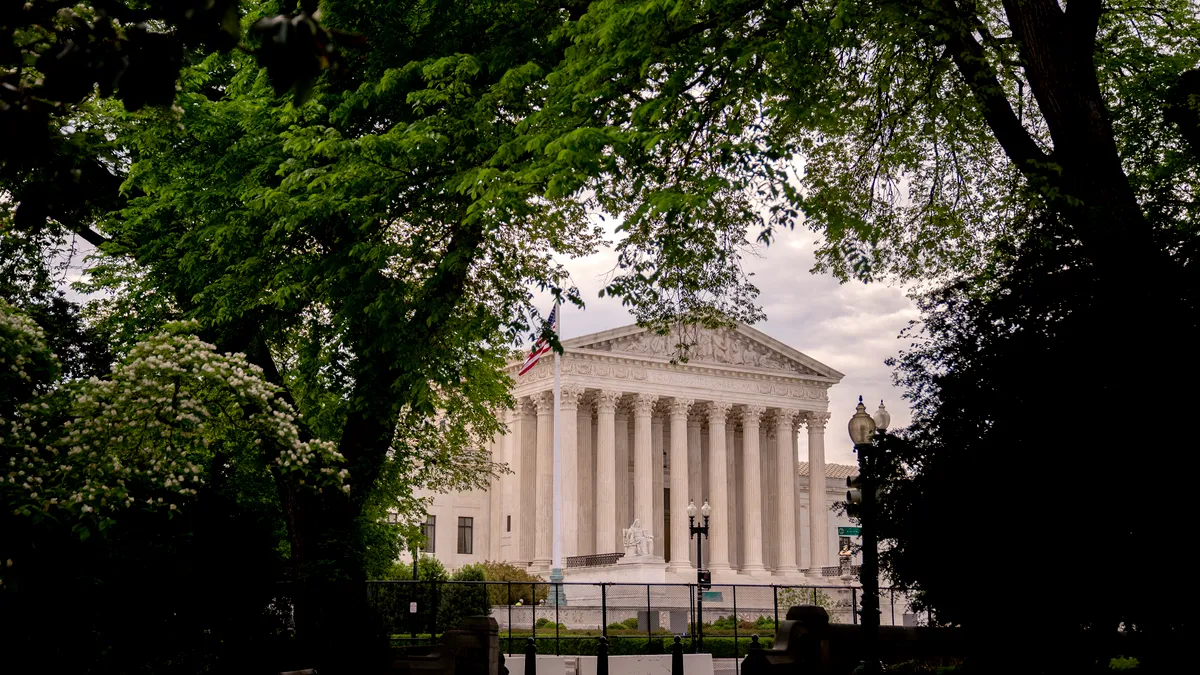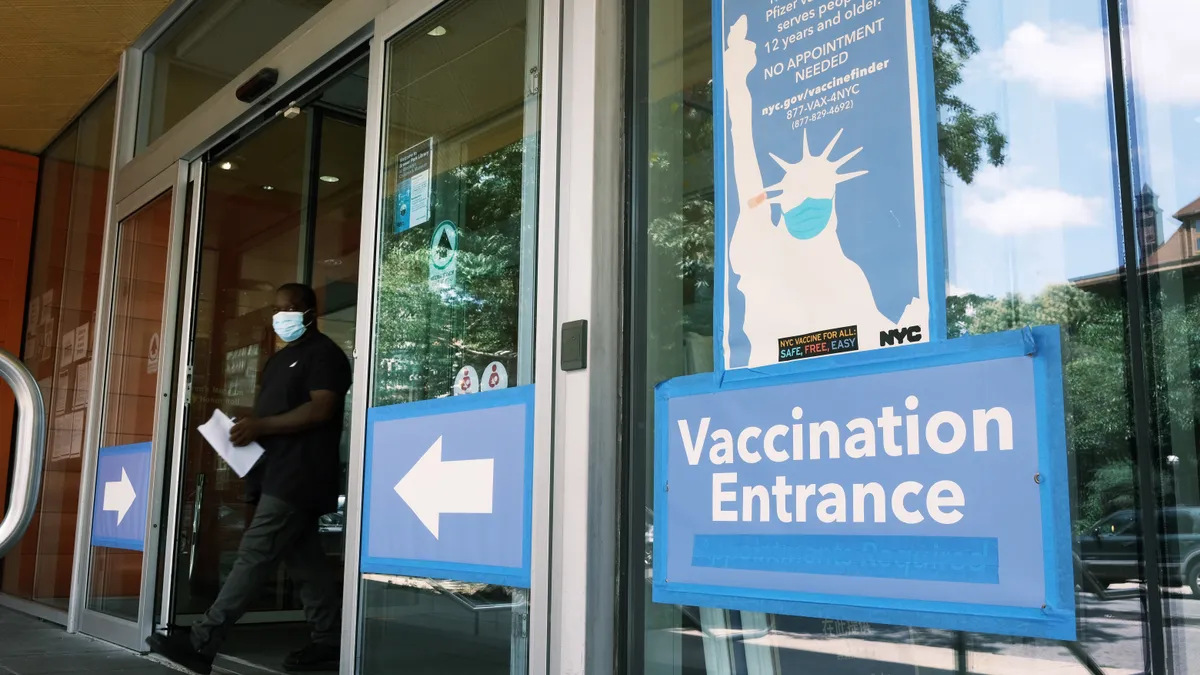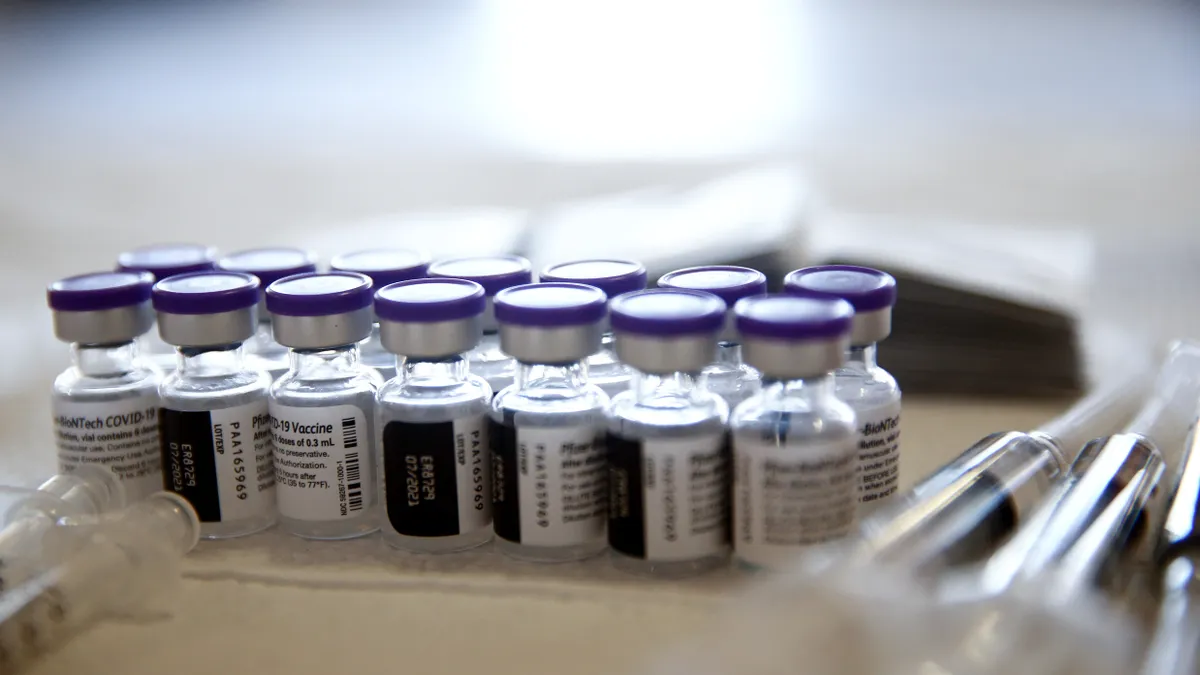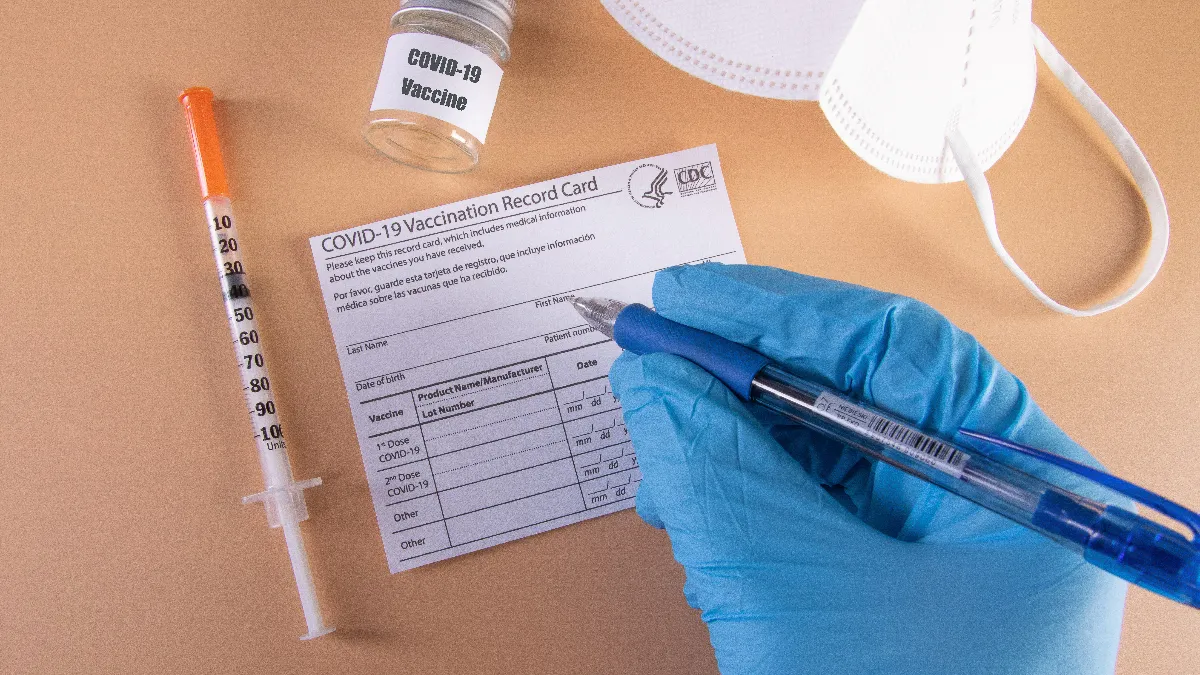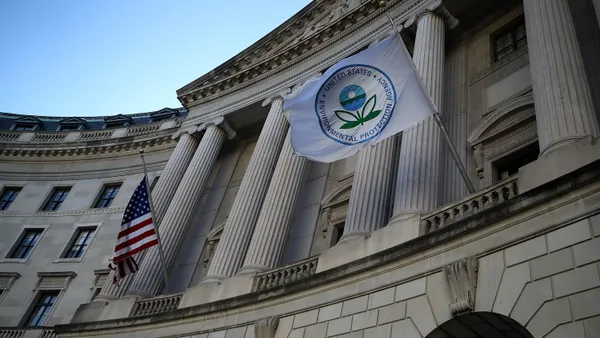Since COVID-19 vaccines became available to waste and recycling workers in the spring, major industry employers have largely encouraged, but not required, that existing or new employees get vaccinated.
That approach is poised to evolve in light of forthcoming federal requirements. The Biden administration on Sept. 9 announced that OSHA would come out with a rule to implement a temporary emergency standard requiring businesses with more than 100 employees to either ensure that workers are fully vaccinated against COVID-19 or require those who aren’t vaccinated to test negative each week before going to work.
About half of U.S. state attorneys general sent a letter to President Joe Biden questioning such a mandate, saying it would worsen the ability to hire and keep workers across industries, and threatening legal action. Still, many legal experts maintain that such federal requirements will go through, at least in the short term. OSHA is working on that standard as quickly as possible and is not taking stakeholder meetings in the process, Bloomberg Law reported last week. The Biden administration would like to see the forthcoming rule spur more companies into enacting stricter vaccine policies in anticipation of the requirement.
Waste and recycling trade organizations say they continue to encourage worker vaccinations and are committed to sharing information and assisting employers in complying with an OSHA mandate once details are available. The National Waste & Recycling Association, which is requiring that its own staff be vaccinated, is watching and waiting for more information from OSHA, according to the group's spokesperson.
Florida-based Waste Pro, whose workforce currently numbers about 3,900, has begun a process of gathering information on whether or not employees have been vaccinated against COVID-19. Starting with corporate team members, the company is verifying and uploading vaccine card information using its HR software, said Vice President of Human Resources Shannon Early, with the intention of extending that data collection to the rest of its employees in the weeks to come.
Under company policy, unvaccinated employees are required to wear a face mask at all times on company property or when representing the company at offsite events. Early and colleagues will also be testing a part of the software that would allow unvaccinated employees to upload weekly COVID-19 test results.
Waste Pro does not currently offer on-site testing services, but once the company has data on the breakdown of vaccinated and unvaccinated people in different divisions and locations, it's something it could consider. Early said she's heard of instances anecdotally in which employees decided to get vaccinated because they didn't want to have to comply with testing and masking requirements.
The company has held mobile on-site vaccination events in recent months, including some for booster shots. In assessing whether to offer those events in the future, "I think we had, so far, kind of saturated the [market for] people who wanted to get vaccinated," she said. But a federal mandate may encourage more people to get vaccinated, Early said. Further, "it will really actually just tell us who is and who isn't [vaccinated], and then we will have a good idea of whether we need to be offering events at different facilities."
Rumpke Waste & Recycling, headquartered near Cincinnati, with approximately 3,600 total employees, has not asked employees about their vaccination status. The company is awaiting further details on what OSHA will require, but it has not done anything specifically in response to the Sept. 9 announcement, said Director of Corporate Communications Amanda Pratt.
“Throughout the whole period, we've strongly encouraged our employees to get vaccinated, but we have not mandated it," Pratt said. "We are not asking employees what they've decided to do at this point; of course we're closely watching and waiting for the OSHA guidance to come out."
At this stage of the pandemic, overall labor market conditions are the more significant challenge to workforces, Pratt said. "It's very challenging to find team members right now in this economy," she said. "We're also seeing a rise in costs and inflation ... and those can be directly or loosely tied to the [later] impacts of the pandemic. And we're still doing a lot of extra sanitation and a lot of extra precautionary steps."
Trade association leaders shared similar sentiments on the pandemic's impacts on the labor market, versus the potential impact of vaccine requirements.
Different workers want different vaccine policies, said Tony Smith, vice president of safety at the Institute of Scrap Recycling Industries. "There are some that may want to work specifically for a company where they feel safe and they know that people are vaxxed. There are some that may stand up and say, ‘No, this is not for me,' and they may leave," he said, pointing to the example of healthcare workers leaving jobs following an earlier announcement of a federal mandate covering many of those workers. "So, honestly I don't know what's going to happen until this one happens with our sector," Smith said.
Solid Waste Association of North America CEO David Biderman reiterated what's been at stake for employers with vaccination decisions. “The ongoing collection worker shortage is certainly a factor in employers not just encouraging their workers to get vaccinated, but creating [a] financial incentive for them to get vaccinated. Because if you have a driver [and he's really good], you don't want to risk losing him. And you want him to get vaccinated so he doesn't get sick,” Biderman said.
While privately employed waste workers may not be subject to employer vaccine mandates, some city sanitation workers have been. Some cities, such as New York City, preceded the Biden administration's policy with their own requirements for local government employees. At the New York City Department of Sanitation, for instance, the 560 new sanitation workers hired since Aug. 2 are all covered by the city's vaccine mandate, a department spokesperson said in an email last week. Existing employees must provide proof of vaccination or submit weekly negative test results. Chicago has enacted similar requirements.
The thinking about COVID-19 risks to waste workers has come a long way from the early days of the pandemic, when the waste industry feared potential spread of the coronavirus through coming into contact with people's trash, carts and the like. Now, some researchers are considering how to keep different types of public-facing workers safe from infectious airborne diseases like COVID-19 in the future.
Researchers at New York University's School of Global Public Health recently received a federal grant to study efforts to protect New York City transit workers, with potentially broad implications for how infection prevention and control programs affect the health and well-being of frontline workers. Despite the transit focus of this grant, the solid waste worker population would be good to study in the future, said Robyn Gershon, an occupational and environmental health and safety specialist and principal investigator of the study.
At the beginning of the pandemic, "anyone who was out and about and working as an essential worker had potential risk of exposure, but they had no infection control programming in place. And why would they? We never thought of it before, but now we realize we really need it," she said.



